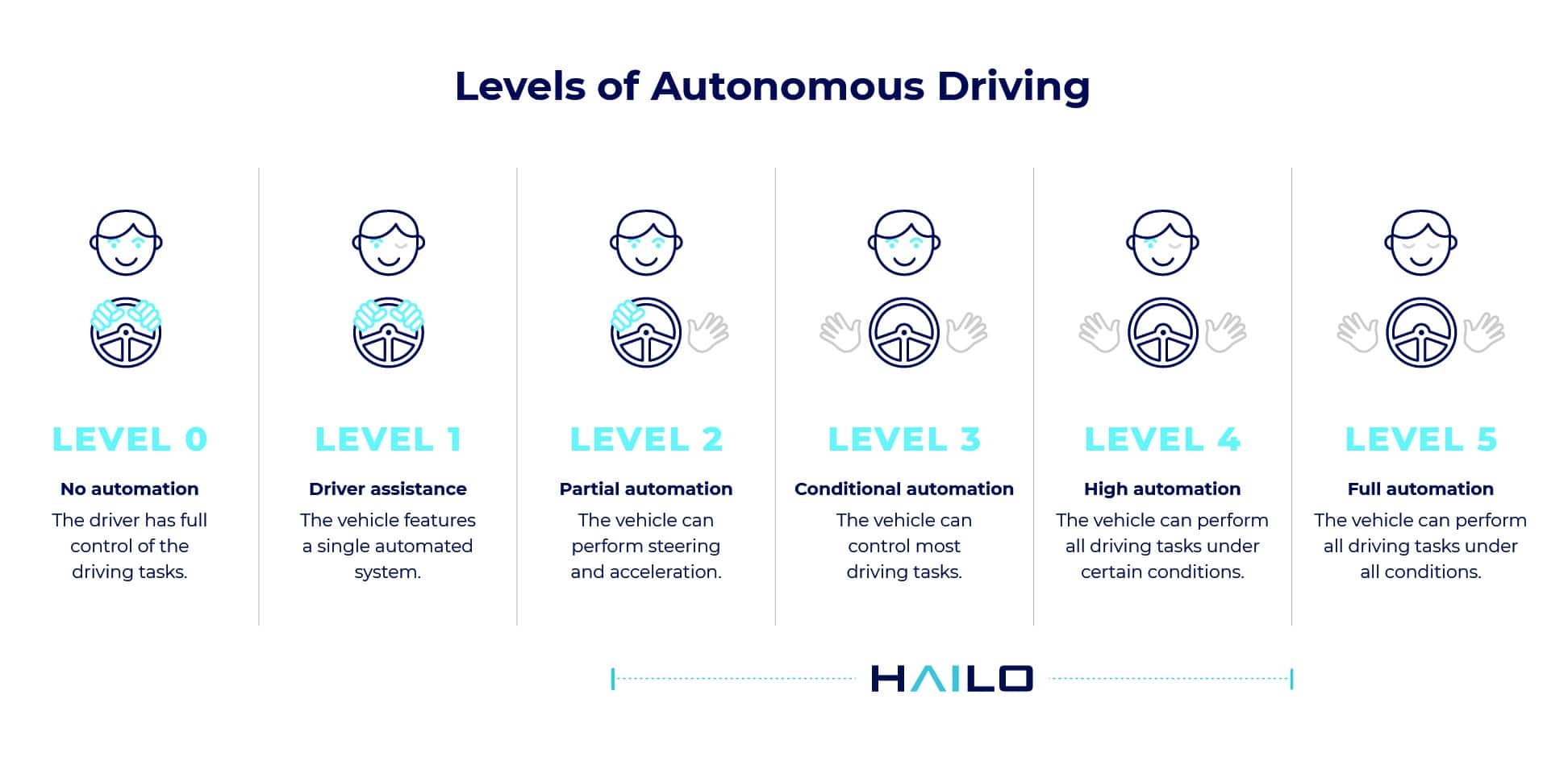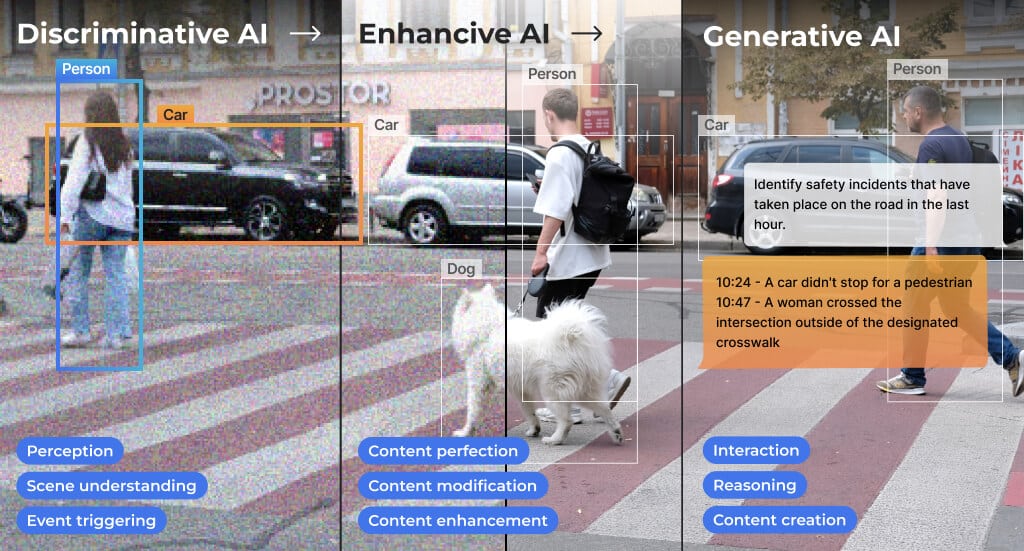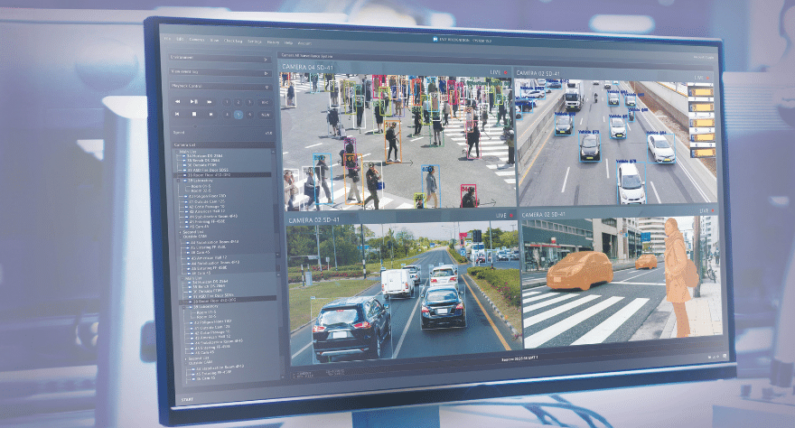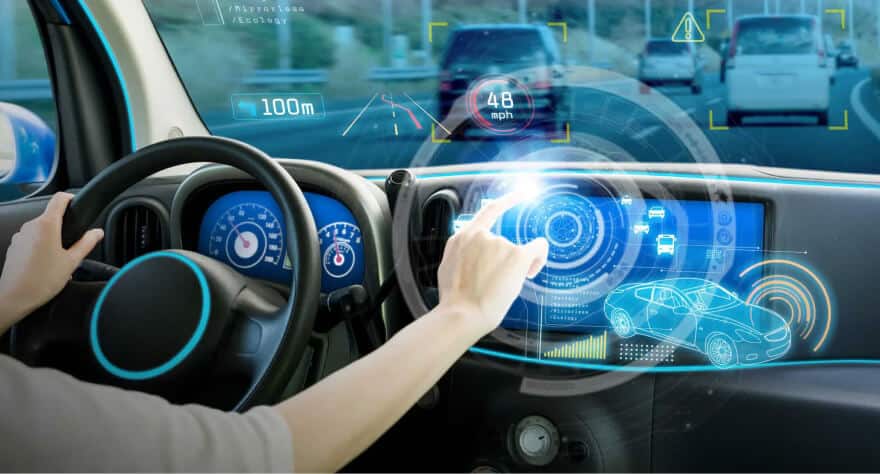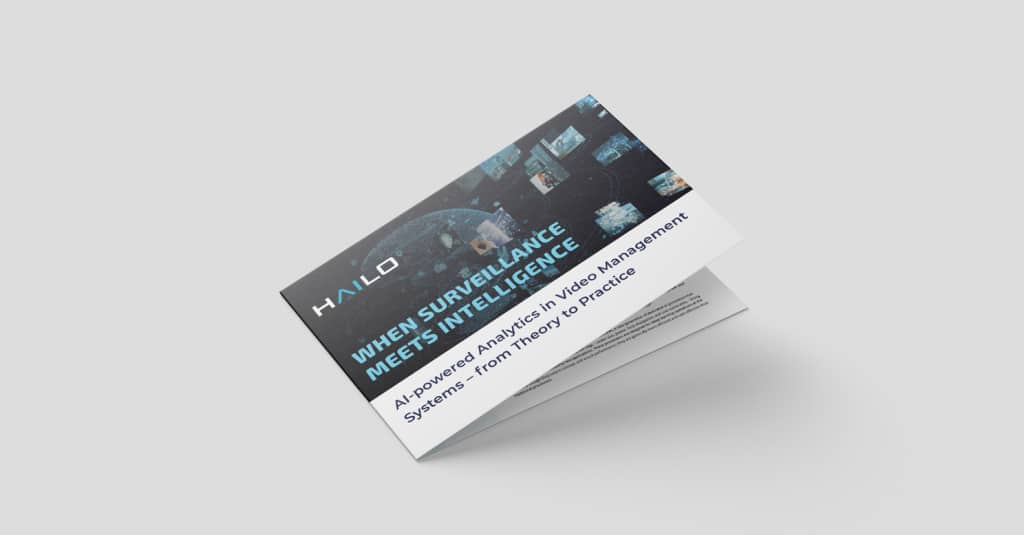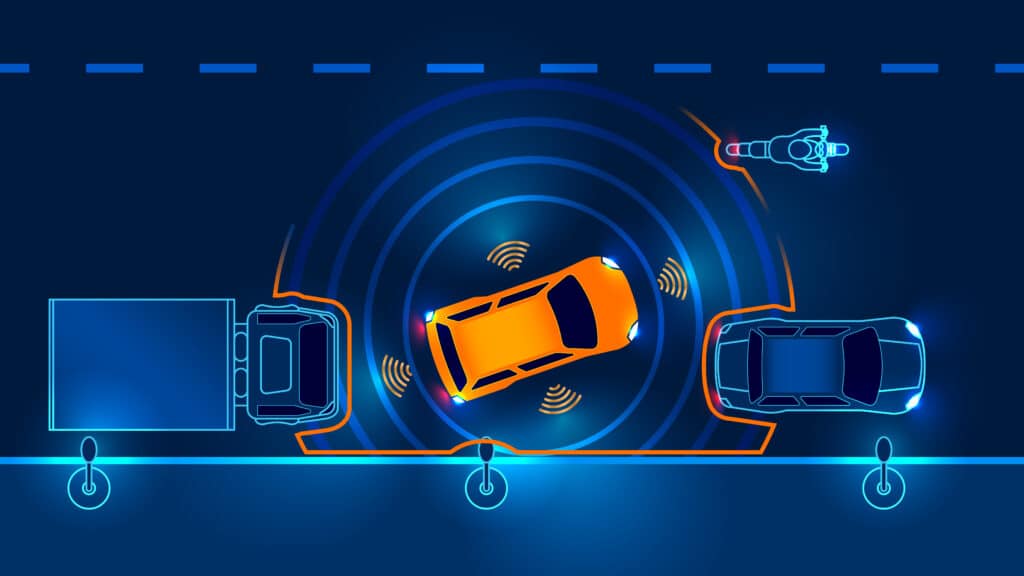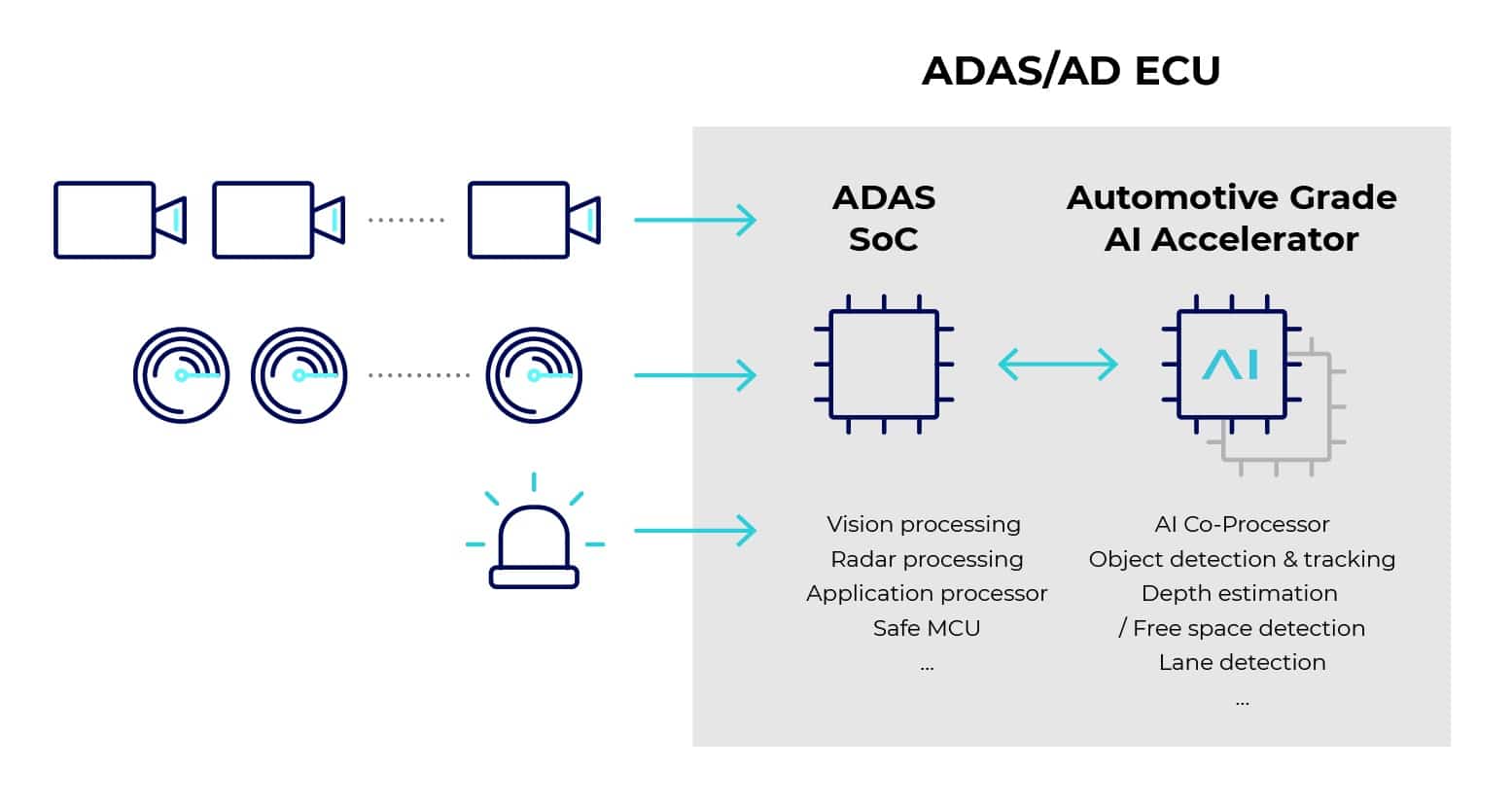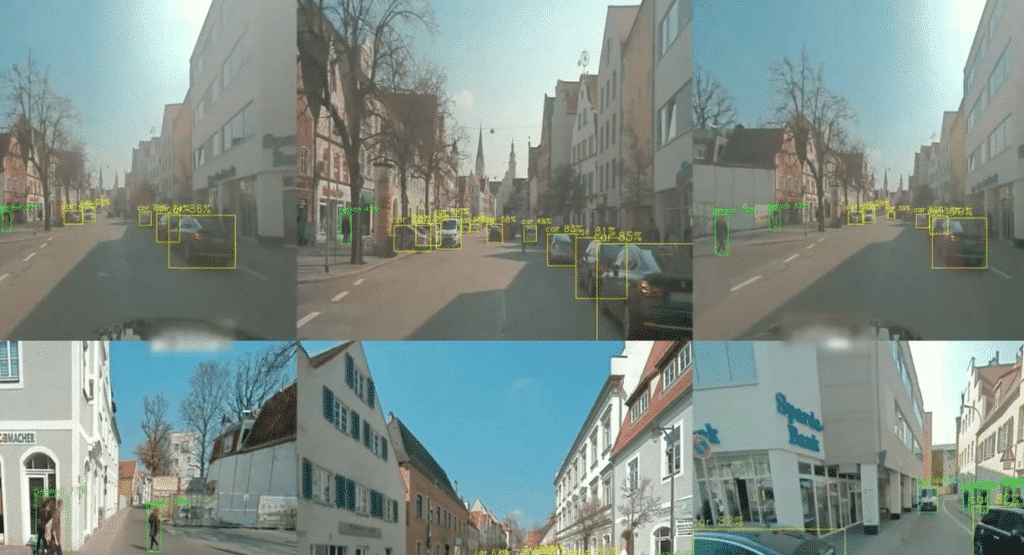AI-Powered Driving Automation
Since the invention of the first car, safety has been the driver for innovation and progress in the automotive industry. These days, machine learning is harnessed to further drive safety in automotive, but also to enable efficiency and convenience for drivers. Machine learning is applied in both Advanced Driver Assistance Systems (ADAS) and in autonomous driving (AD), which rely on AI algorithms to analyze and interpret data from cameras and other perception sources, like radars and LiDARs to navigate roads and make driving decisions.
These enhancements also find their ways to lightweight vehicles, motorcycles and bicycles, as well as off-road vehicles, giving rise to different sets of applications that go beyond driving on a motorway.
